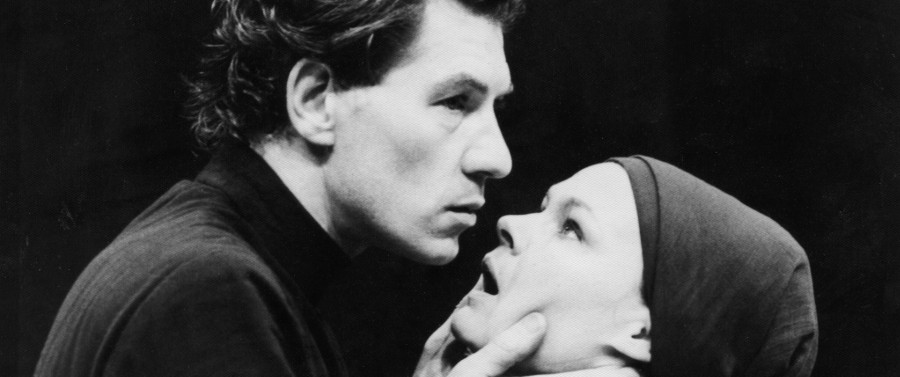Two minutes into the new documentary chronicling his life and career, Sir Ian McKellen notes “It might look as if, from an early age, I had been preparing for that moment, but I hadn’t”.
He’s talking about the moment he decided to become a professional actor, but it seems a relevant reflection on any of the various roles McKellen has played over the last 70+ years – everything from actor, to teacher, to gay activist.
In Joe Stephenson’s new documentary McKellen: Playing the Part, all of these roles are explored from the sole perspective of McKellen himself. Sitting casually on a red couch, his tie askew, shirt bunched, he discusses major events in his life in a conversational, vulnerable manner that is refreshing for a documentary of this kind. It might be far from objective, but McKellen’s openness, coupled with the emotion and charm that swim across his seasoned features, mean it is sure to be adored by fans and those who appreciate its subject’s craft.
McKellen begins by reminiscing about his childhood in the middle-class market town of Burnley, England, and the elements of his youth that established the foundation for his acting ability. His attention to detail and love of theatrics inspired him to mimic the eccentricities of individuals whether on stage at school, or the confines of his family home. Rather than rely heavily on stock imagery, Stephenson recreates these landmark moments in short scenes starring Milo Parker (who played Roger in McKellen’s 2015 film, Mr. Holmes) as young Ian. McKellen continues his stories as these scenes play out, the characters lip-syncing to his words.
But for all his love of performance, McKellen admits he never intended to become a professional performer.
“You’re never just yourself. You’re a part of yourself”, he muses. Performance was a means of distracting from the pain of repressing his homosexuality and, perhaps, the deaths of his parents. It was only when the reviews started rolling in, proclaiming him one of the most exciting new arrivals on London’s theatrical scene, that he decided to pursue acting as a career.
From there, McKellen takes the audience through his days performing alongside Maggie Smith and under Laurence Olivier at the Old Vic, his move to the independent Prospect Theatre Company where he starred alongside Judi Dench in Macbeth, and the leading roles in Shakespeare’s Richard II and Marlowe’s Edward II that made him a national star. Performance footage and stills accompany McKellen’s almost casual, but nevertheless fascinating recollection of the performances, visually charting his explosive career.

As the documentary continues, McKellen reveals how the two most prominent parts of his life combined in 1988, when he came out as gay in order to use his public position to campaign against a federal proposition that would have seen homosexuality further suppressed in British society. His regret at not coming out earlier is evident, even as he does his best to stay stoic. It’s clear that, no matter what stage of his life he was in, the trauma that came from hiding his sexuality impacted on all hopes of happiness.
After touching on his work in film (including a couple of unintentionally funny anecdotes from his time on the set of The Hobbit), and endeavours to end homophobic bullying in schools, McKellen: Playing the Part ends with McKellen discussing death and legacy. It’s a sombre segment which includes a heartwrenching look at McKellen’s reaction to the final show in the 2013 run of Waiting for Godot; a reaction that is sure to stick with audience members long after the film is over.
Technically, McKellen: Playing the Part is simple, yet potent. Stephenson’s direction and editing is subtle; he’s well aware that McKellen’s mere presence is compelling enough to carry the film’s 91 minute run time. The same can be said for the music. Peter Gabriel’s score is used intermittently, and mostly to support the power of McKellen’s powerful voice. Credit must also go to Eben Bolter, whose lighting gives McKellen’s face spectacular dimension.
McKellen: Playing the Part is as comprehensive and moving a portrait of one of the century’s greatest actors as appreciators of his work could ever hope for. Whether in cinemas or at home, those interested in a first-hand account of Sir Ian McKellen’s life should make every effort to see the film.
—
McKellen: Playing the Part opens in Australian cinemas on September 27th.
